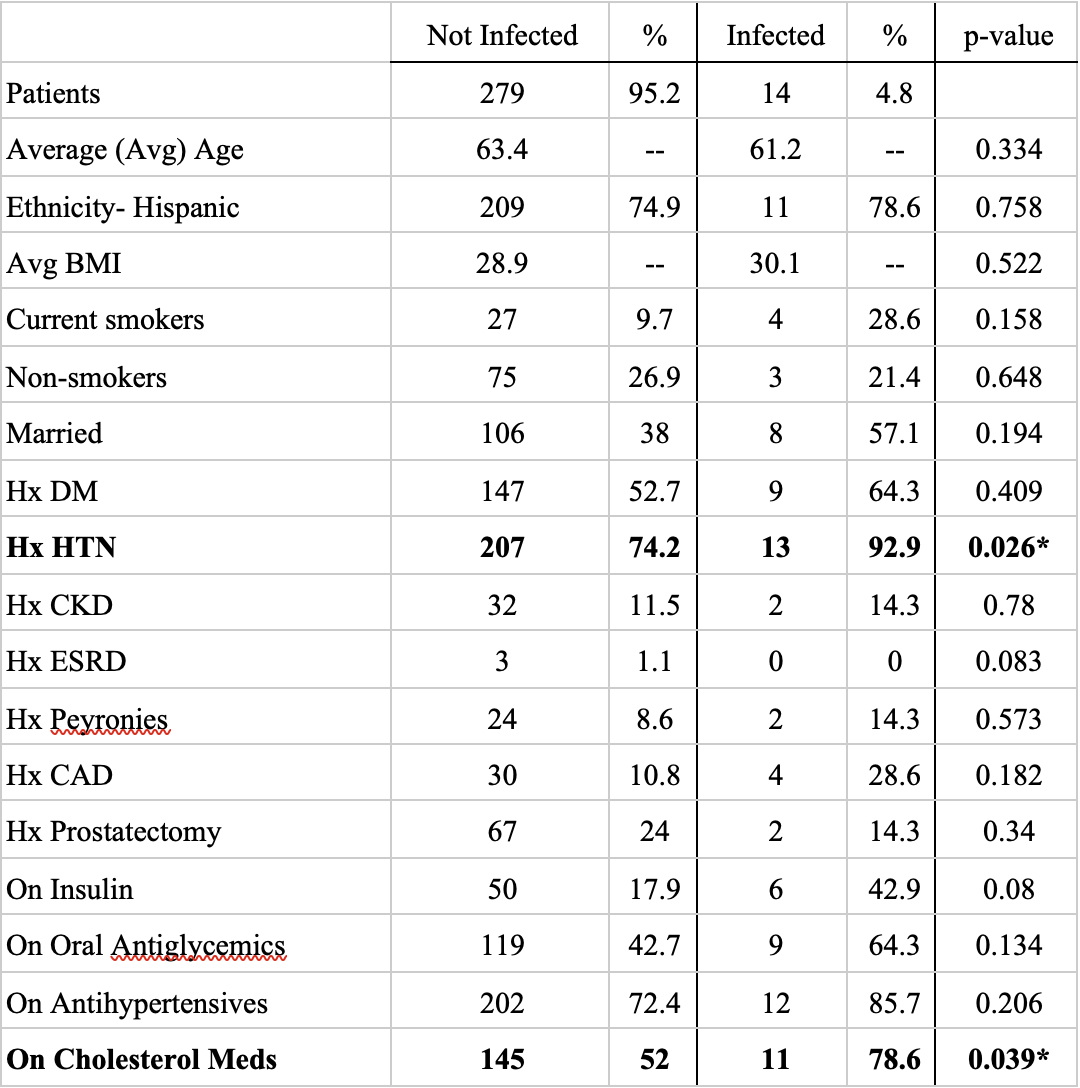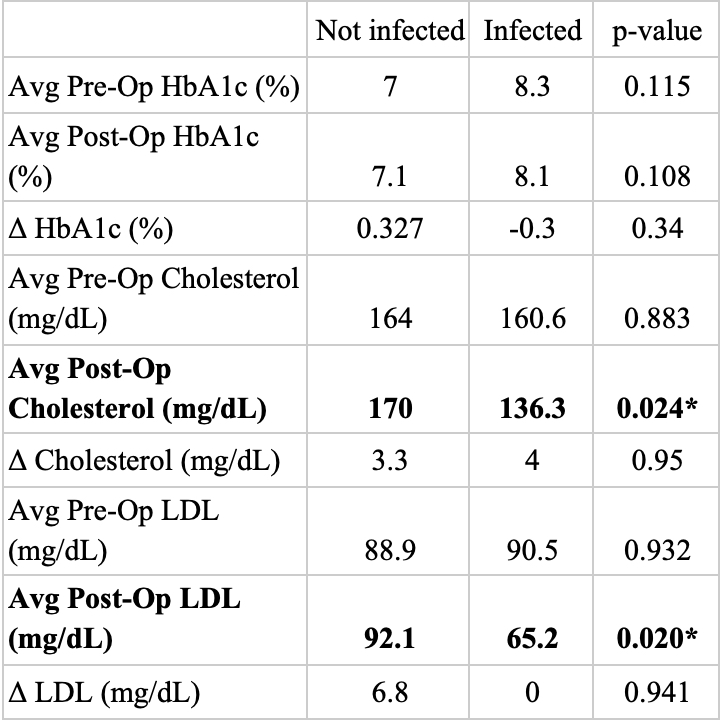Back
Poster, Podium & Video Sessions
Moderated Poster
MP37: Infections/Inflammation/Cystic Disease of the Genitourinary Tract: Prostate & Genitalia
MP37-02: Hypertension and Low Cholesterol as Risk Factors for Infection after Penile Prosthesis Surgery In a Diverse, Urban Academic Center
Sunday, May 15, 2022
7:00 AM – 8:15 AM
Location: Room 225
Justin Loloi*, Jubin Matloubieh, Bronx, NY, Catie Riley, Waterville, ME, David Melendez, Kara Watts, Pedro Maria, Bronx, NY
- JL
Poster Presenter(s)
Introduction: Inflatable penile prosthesis surgery (IPPS) represents a useful surgical intervention in the treatment of ED, Infection is a devastating complication of IPPS. Given the significant risk of infection following IPPS, there is an ongoing need to identify contributing risk factors. Thus, we sought to evaluate the association between medical comorbidities, medications, and serum metabolic lab values and infection in our ethnically diverse population.
Methods: A retrospective chart review was performed on all men who had primary IPPS between 2017-2019 at our institution. Variables collected include patient demographics, comorbidities, lab values (hemoglobin A1c, testosterone, cholesterol and LDL within 6 months pre-op), and pre-operative urine cultures. Rates of post-operative infection through 60 days and management was also collected. An unpaired t-test (p = 0.05) was used to compare variables between the cohort of men that developed an infection after IPPS surgery and those who did not.
Results: 293 men underwent primary IPPS, of whom 14 (4.78%) had post-IPPS infection (Table 1). Lower postoperative cholesterol (p=0.024), history of hypertension (HTN) (p=0.026), and anti-lipidemic medications (p=0.039) were significantly different between the infected and non-infected cohorts (Table 2). There was no significant difference between the groups with respect to pre-op hemoglobin A1c and testosterone.
Conclusions: HTN and anti-lipidemic medications were more common in men who developed infection post-IPPS. As HTN can disrupt both macro- and microvasculature over time, it may contribute to poor post-IPPS healing. Despite their potentially beneficial implications in wound healing, statins have been shown to have immunomodulatory effects including inhibiting the immune response, which may make patients more vulnerable to implant infection. Thus, urologists should consider exercising a heightened level of caution and vigilance for post-operative infection when implanting these patients.
Source of Funding: None


Methods: A retrospective chart review was performed on all men who had primary IPPS between 2017-2019 at our institution. Variables collected include patient demographics, comorbidities, lab values (hemoglobin A1c, testosterone, cholesterol and LDL within 6 months pre-op), and pre-operative urine cultures. Rates of post-operative infection through 60 days and management was also collected. An unpaired t-test (p = 0.05) was used to compare variables between the cohort of men that developed an infection after IPPS surgery and those who did not.
Results: 293 men underwent primary IPPS, of whom 14 (4.78%) had post-IPPS infection (Table 1). Lower postoperative cholesterol (p=0.024), history of hypertension (HTN) (p=0.026), and anti-lipidemic medications (p=0.039) were significantly different between the infected and non-infected cohorts (Table 2). There was no significant difference between the groups with respect to pre-op hemoglobin A1c and testosterone.
Conclusions: HTN and anti-lipidemic medications were more common in men who developed infection post-IPPS. As HTN can disrupt both macro- and microvasculature over time, it may contribute to poor post-IPPS healing. Despite their potentially beneficial implications in wound healing, statins have been shown to have immunomodulatory effects including inhibiting the immune response, which may make patients more vulnerable to implant infection. Thus, urologists should consider exercising a heightened level of caution and vigilance for post-operative infection when implanting these patients.
Source of Funding: None



.jpg)
.jpg)